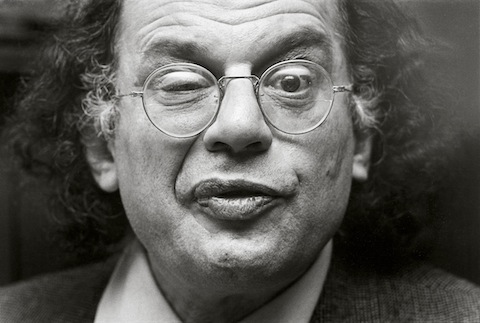Who really killed John F. Kennedy? Did America really land on the moon? What really brought down the Twin Towers? Few modern phenomena possess the sheer fascination quotient of conspiracy theories. If you believe in them, you’ll of course dig into them obsessively, and if you don’t believe in them, you surely feel a great curiosity about why other people do. Science writer and Skeptic magazine Editor in Chief Michael Shermer falls, needless to say, into the second group; so far into it that examining conspiracy theories and those who subscribe to them has become one of his best-known professional pursuits since at least 1997, the year of his straightforwardly titled book Why People Believe Weird Things.
On the 50th anniversary of JFK’s assassination, Shermer wrote an article in the Los Angeles Times about the reasons that event has drawn so many avid conspiracy theorists over the past half-decade. First: their cognitive dissonance resulting from the two seemingly incompatible ideas, that of JFK “as one of the most powerful people on Earth” and JFK “killed by Lee Harvey Oswald, a lone loser, a nobody.” Second: their participation in a monological belief system, “a unitary, closed-off worldview in which beliefs come together in a mutually supportive network.” Third: their confirmation bias, or “the tendency to look for and find confirming evidence for what you already believe” — the umbrella man, the grassy knoll — “and to ignore disconfirming evidence.”
These factors all come into play with the other major American conspiracy theories as well. In the podcast clip at the top of the post, you can hear physicist Michio Kaku trying to set straight a moon landing conspiracy theorist. They argue that man has never set foot on the moon, but that the government instead hoodwinked us into believing it with an elaborate audiovisual production (directed, some theorists insist, by none other than Stanley Kubrick, who supposedly “confessed” in fake interview footage that recently made the internet rounds). Should you require further argument to the contrary, have a look at S.G. Collins’ Moon Hoax Not just above.
No higher-profile set of conspiracy-theory movement has come out of recent history than the 9/11 Truthers, who may differ on the details, but who all gather under the umbrella of believing that the events of that day happened not because of the actions of a conspiracy of foreign terrorists, but because of a conspiracy within the United States government itself. In the Q&A footage above (originally uploaded, in fact, by a believer), one such theorist stands up and asks linguist and activist Noam Chomsky to join in on the movement, pointing to a cover-up of the manner in which 7 World Trade Center collapsed — a big “smoking gun” of the larger conspiracy, in their eyes.
This prompts Chomsky to offer an explanation of how scientists and engineers actually go looking for the truth. Have they eliminated entirely their cognitive dissonance, monological belief systems, and confirmation biases? No human could ever do that perfectly — indeed, to be human is to be subject to all these distorting conditions and more — but the larger enterprise of science, at its best, frees us little by little from those very shackles. What a shame to voluntarily clap oneself back into them.
Related Content:
Michio Kaku Schools a Moon Landing-Conspiracy Believer on His Science Fantastic Podcast
Stanley Kubrick Faked the Apollo 11 Moon Landing in 1969, Or So the Conspiracy Theory Goes
Noam Chomsky Schools 9/11 Truther; Explains the Science of Making Credible Claims
Based in Seoul, Colin Marshall writes and broadcasts on cities and culture. He’s at work on a book about Los Angeles, A Los Angeles Primer, the video series The City in Cinema, the crowdfunded journalism project Where Is the City of the Future?, and the Los Angeles Review of Books’ Korea Blog. Follow him on Twitter at @colinmarshall or on Facebook.



